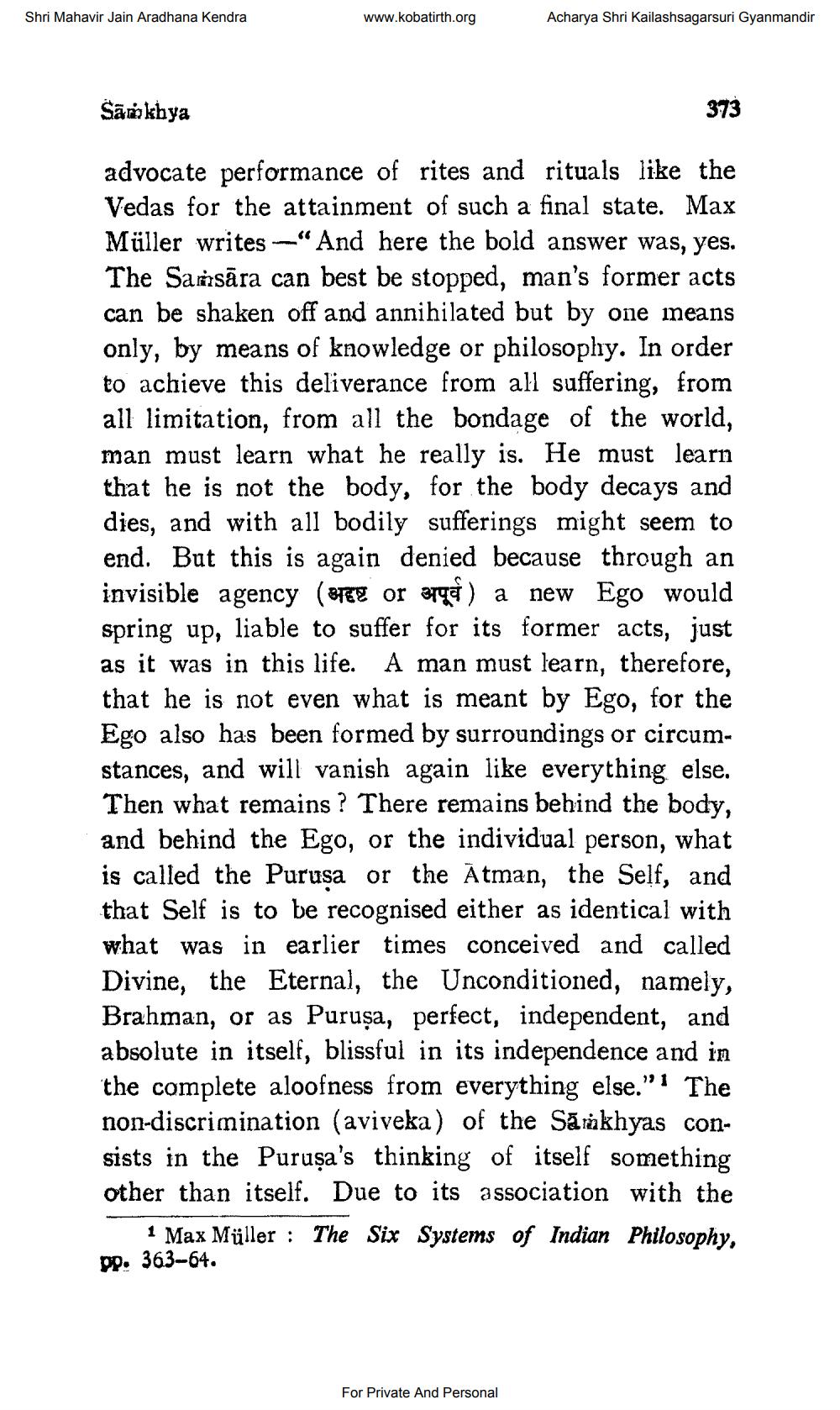________________
Shri Mahavir Jain Aradhana Kendra
www.kobatirth.org
Acharya Shri Kailashsagarsuri Gyanmandir
Sām khya
373
advocate performance of rites and rituals like the Vedas for the attainment of such a final state. Max Müller writes —"And here the bold answer was, yes.
The Samsāra can best be stopped, man's former acts can be shaken off and annihilated but by one means only, by means of knowledge or philosophy. In order to achieve this deliverance from all suffering, from all limitation, from all the bondage of the world, man must learn what he really is. He must learn that he is not the body, for the body decays and dies, and with all bodily sufferings might seem to end. But this is again denied because through an invisible agency (Pret or set) a new Ego would spring up, liable to suffer for its former acts, just as it was in this life. A man must learn, therefore, that he is not even what is meant by Ego, for the Ego also has been formed by surroundings or circumstances, and will vanish again like everything else. Then what remains ? There remains behind the body, and behind the Ego, or the individual person, what is called the Purusa or the Ātman, the Self, and that Self is to be recognised either as identical with what was in earlier times conceived and called Divine, the Eternal, the Unconditioned, namely, Brahman, or as Puruşa, perfect, independent, and absolute in itself, blissful in its independence and in the complete aloofness from everything else.”! The non-discrimination (aviveka) of the Sārakhyas consists in the Puruşa's thinking of itself something other than itself. Due to its association with the
1 Max Müller : The Six Systems of Indian Philosophy, pp. 363-64.
For Private And Personal




